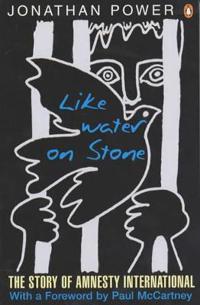
When British attorney Peter Beneson founded Amnesty International in 1961 to campaign for the release of political prisoners, his idea of bombarding offending governments with letters, postcards, and telegrams was sharply criticized as "one of the larger lunacies of our time." Forty years later, with more than one million members and supporters in over 160 countries and territories, London-based Amnesty has impacted individual lives and played a significant role in shaping public policy, if not always practice, of governments around the globe. Amnesty's extraordinary strategies to reduce human rights abuses are critically examined in this objective look at the successes and failures of the organization over the last four decades. In Like Water on Stone, author Jonathan Power recognizes Amnesty's considerable achievements-the difficult struggles in Guatemala to help those facing death squads,...
Visa mer
Recensioner
Bli först med att recensera denna bok



